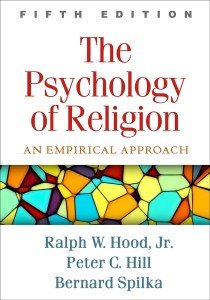Review
Richard Attenborough's 1982 epic Gandhi is more than just a biographical film; it's a cinematic testament to the power of nonviolent resistance, a sweeping historical drama, and a profoundly moving portrait of a man who changed the course of history. The film, clocking in at over three hours (although that is no longer unusual), demands patience but rewards it with a profound and often breathtaking journey through the life of Mahatma Gandhi. It's a film that, even decades later, retains its capacity to inspire and provoke reflection.
The film's greatest strength lies in its central performance. Ben Kingsley's portrayal of Mahatma Gandhi is nothing short of iconic. He doesn't merely mimic Gandhi's mannerisms; he embodies his spirit, his unwavering conviction, his quiet strength, and even his moments of doubt and vulnerability. Kingsley's performance is a masterclass in subtle acting, conveying a complex and multifaceted individual without resorting to melodramatic flourishing. He captures the essence of Gandhi's spirituality, his deep empathy for the oppressed, and his unwavering commitment to his principles, even in the face of intense adversity.
Attenborough's direction is equally impressive. He masterfully utilizes sweeping cinematography to showcase the vastness of the Indian landscape, highlighting the scale of Gandhi's movement and the impact of his message. The film seamlessly weaves together intimate moments of Gandhi's personal life with the larger historical events, creating a compelling narrative that never feels disjointed. The use of color is striking, particularly in depicting the vibrancy of Indian culture and the stark contrast between the peaceful protests and the brutal realities of colonial oppression. The battle scenes, though carefully choreographed, never glorify violence, instead emphasizing the courage and resilience of those who chose to fight for their freedom peacefully.
The film's pacing, while sometimes deliberate, allows for a deep immersion into Gandhi's world. It meticulously charts his journey from a young lawyer in South Africa, grappling with racial discrimination, to the leader of India's independence movement. We witness his evolution as a leader, the development of his philosophy of Satyagraha, and the challenges he faced in uniting a diverse nation with conflicting ideologies. The film doesn't shy away from depicting the complexities of Gandhi's life, acknowledging his flaws and the internal conflicts he experienced.
However, Gandhi is not without criticisms. Some argue that the film simplifies the complexities of Indian history and politics, potentially overlooking the contributions of other key figures in the independence struggle. The portrayal of specific historical events, while visually compelling, might also be subject to interpretation and historical debate. Furthermore, the film's length, while a testament to its ambition, might feel daunting to some viewers.
Despite these criticisms, Gandhi remains a landmark achievement in cinematic storytelling. It's a powerful and moving tribute to a remarkable man and a pivotal moment in history. The film's enduring legacy lies not only in its historical accuracy (while acknowledging its interpretations) but in its ability to inspire audiences to reflect on the power of nonviolent resistance, the importance of social justice, and the enduring relevance of Gandhi's message in a world still grappling with conflict and inequality. It's a film that deserves to be seen, discussed, and revisited, not just as a historical document but as a powerful work of art that continues to resonate with audiences across generations. It's a cinematic experience that stays with you long after the credits roll.






